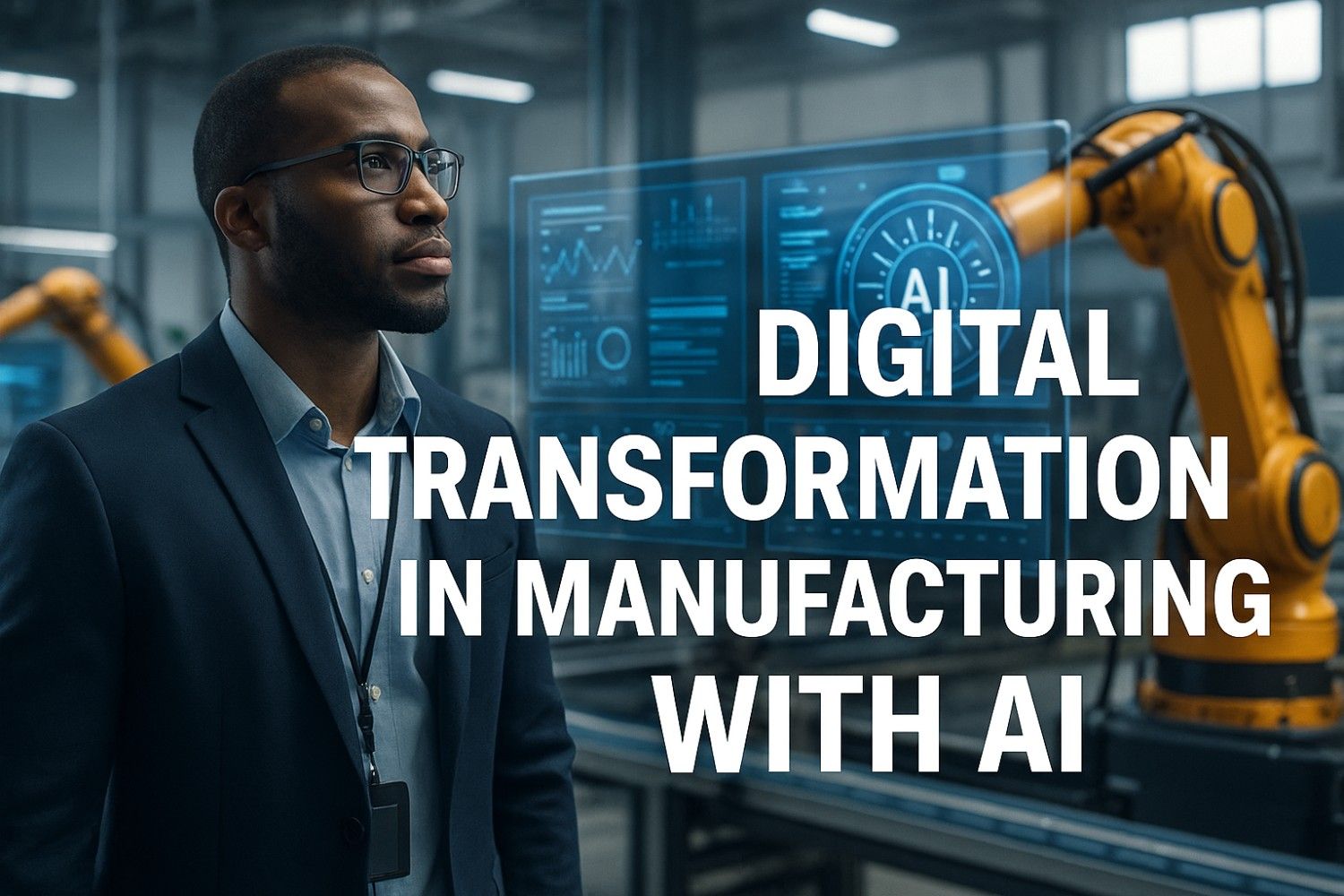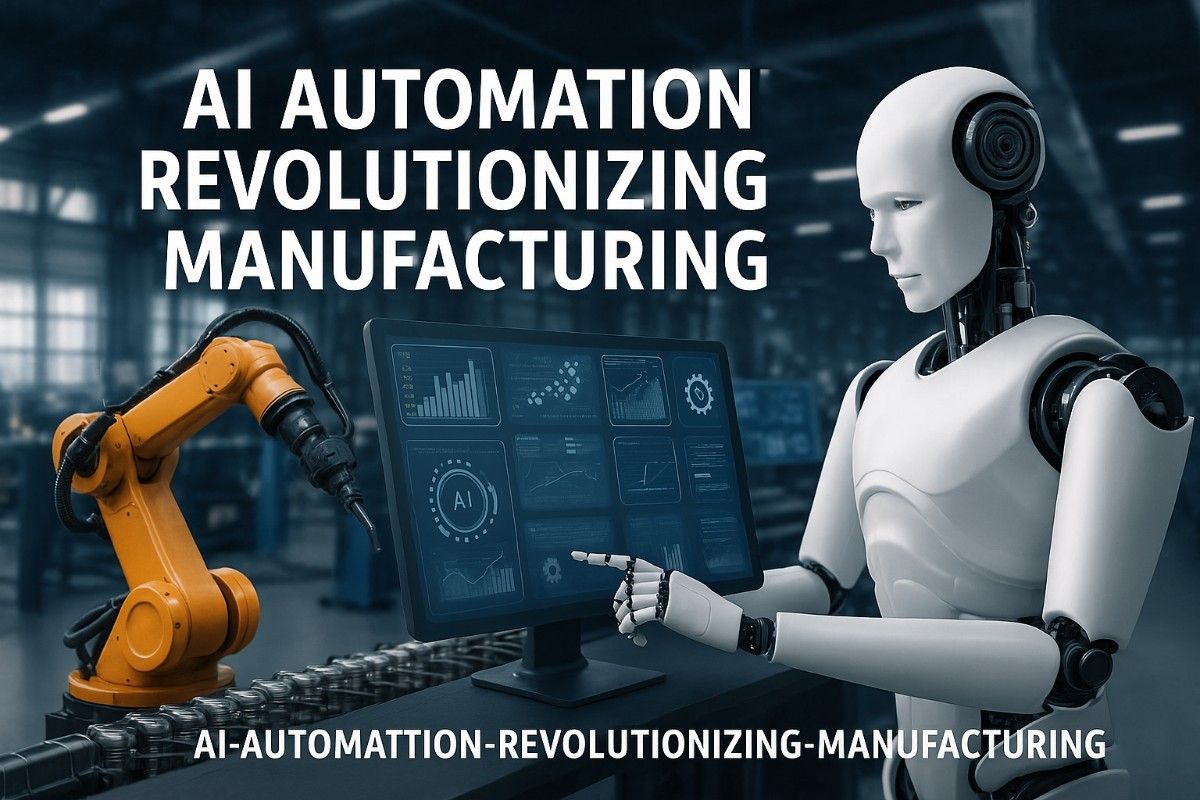The convergence of Industry 4.0 technologies with cement manufacturing represents a watershed moment for an industry that has traditionally evolved gradually through incremental process improvements rather than revolutionary technological disruptions. This comprehensive transformation—integrating artificial intelligence, Internet of Things, digital twins, advanced analytics, and autonomous systems throughout cement production facilities—fundamentally reimagines how these critical industrial plants operate, optimize, innovate, and create value in an era where sustainability requirements, operational efficiency demands, and competitive pressures require capabilities far exceeding what traditional manufacturing approaches can deliver.
Industry 4.0 cement plants enhanced by AI leverage intelligent technologies to create self-optimizing, predictive, adaptive manufacturing environments that continuously improve performance across all operational dimensions. Leading cement manufacturers implementing comprehensive digital transformation through platforms like iFactoryapp are achieving extraordinary results including 35-50% energy efficiency gains, 40-55% quality improvements, 25-40% production increases, 45-60% maintenance cost reductions, 50-70% emissions decreases, and 20-30% overall operating cost reductions—performance improvements that simultaneously strengthen competitiveness, profitability, and environmental sustainability positioning them as industry pioneers leading the transition to intelligent, sustainable cement manufacturing.
Industry 4.0 cement market value by 2032
Of cement plants adopting Industry 4.0 tech
Average operational efficiency improvement
Reduction in carbon emissions achieved
What are Industry 4.0 Cement Plants?: AI-Enhanced Intelligent Manufacturing
Industry 4.0 cement plants represent the comprehensive integration of advanced digital technologies throughout cement manufacturing operations creating cyber-physical production systems where intelligent software guides, optimizes, and controls physical manufacturing processes. These transformed facilities leverage artificial intelligence for autonomous decision-making and continuous optimization, IoT sensor networks providing comprehensive real-time operational visibility, digital twins enabling virtual experimentation and predictive optimization, advanced analytics extracting actionable insights from vast operational datasets, and cloud computing platforms enabling scalable data processing, advanced analytics, and collaboration across geographically distributed operations.
The transformation extends far beyond simple automation or digitization of existing processes. Industry 4.0 fundamentally reimagines how cement plants operate through intelligent systems that perceive operational conditions through comprehensive sensor networks, reason about optimal actions using AI algorithms analyzing complex relationships among hundreds of process variables, learn from operational experience through machine learning improving performance progressively, and act autonomously implementing optimizations while adapting dynamically to changing raw materials, equipment conditions, and production requirements without constant human intervention.
Comprehensive Connectivity
IoT sensor networks, industrial communication systems, and cloud platforms create fully connected manufacturing environments where equipment, processes, materials, and systems exchange data continuously enabling real-time visibility, coordination, and optimization across entire facilities.
AI-Driven Intelligence
Machine learning algorithms, predictive models, and optimization systems analyze operational data to discover efficiency opportunities, predict quality outcomes, prevent equipment failures, and autonomously adjust processes maintaining optimal performance despite variations and disturbances.
Digital Integration
Enterprise systems, process controls, quality management, maintenance platforms, and supply chain coordination integrate creating unified digital environments eliminating information silos and enabling end-to-end optimization from raw material sourcing through finished product delivery.
Core Industry 4.0 Technologies in Cement Manufacturing
Multiple converging technologies create the foundation for Industry 4.0 cement plants. Internet of Things (IoT) provides connectivity infrastructure with sensors, smart devices, and industrial networks capturing comprehensive operational data from kilns, mills, conveyors, quality systems, and auxiliary equipment. Advanced sensors monitor temperature profiles, pressure patterns, vibration signatures, power consumption, material flow, chemical composition, and equipment conditions generating rich datasets supporting AI analytics and optimization.
Artificial Intelligence and Machine Learning deliver intelligence transforming data into autonomous decision-making through pattern recognition in complex operational data, predictive modeling forecasting quality outcomes and equipment failures, optimization algorithms discovering ideal process parameters balancing multiple objectives, and reinforcement learning enabling systems to discover novel strategies through simulated experimentation. Digital Twins create virtual replicas of cement plants enabling risk-free testing of process changes, operator training without disrupting production, predictive optimization experimenting with alternative strategies, and scenario analysis for capacity planning and strategic decisions.
Advanced Analytics extract insights from massive operational datasets identifying efficiency opportunities, quality drivers, maintenance patterns, and improvement strategies that manual analysis cannot discover. Cloud Computing provides scalable infrastructure for data storage, advanced analytics, and collaborative access across multiple facilities and corporate functions. Edge Computing enables real-time processing directly on manufacturing equipment with millisecond response times supporting autonomous control and immediate optimization.
Predictive Maintenance Systems analyze equipment sensor data forecasting failures days or weeks in advance enabling proactive interventions preventing costly unplanned downtime. Autonomous Control Systems execute AI-generated optimization strategies automatically adjusting process parameters responding to changing conditions faster and more precisely than human operators. Mobile Technologies provide plant personnel with real-time operational insights, alerts, and decision support through smartphones and tablets. Cybersecurity Frameworks protect connected manufacturing systems from evolving threats through defense-in-depth approaches, continuous monitoring, and incident response capabilities.
Why Industry 4.0 Matters: Transforming Plant Efficiency and Competitiveness
Industry 4.0 adoption has evolved from competitive advantage to business imperative for cement manufacturers facing multifaceted pressures that traditional manufacturing approaches cannot address adequately. Energy costs representing 35-45% of cement production expenses create intense pressure for efficiency improvements—Industry 4.0 technologies delivering 35-50% energy reductions translate to substantial cost savings that dramatically strengthen competitiveness in price-sensitive markets where profit margins are thin and cost leadership determines market share and profitability.
Environmental regulations and sustainability requirements intensify as cement production accounts for approximately 8% of global CO2 emissions making the industry a primary target for climate action policies, carbon pricing mechanisms, and emissions reduction mandates. Industry 4.0 technologies enable dramatic emissions reductions through efficiency improvements, alternative fuel optimization, and circular economy approaches while providing comprehensive documentation demonstrating environmental performance to regulators, customers, and investors increasingly demanding verifiable sustainability credentials.
Quality consistency challenges from raw material variability, process complexity, and equipment aging create customer satisfaction issues, waste generation, and competitive vulnerabilities. Industry 4.0 systems maintain consistent quality despite variations through predictive control and real-time optimization that traditional approaches cannot match. Equipment reliability directly impacts profitability as unplanned downtime disrupts production, wastes energy, delays deliveries, and requires expensive emergency repairs—predictive maintenance enabled by Industry 4.0 prevents failures while optimizing maintenance resource utilization.
Competitive dynamics intensify as digitally advanced cement producers achieve superior cost structures, better environmental performance, more consistent quality, and greater operational flexibility creating widening performance gaps versus technology-lagging competitors. Technology companies and new market entrants leverage digital capabilities disrupting traditional cement business models. Labor productivity and safety concerns drive intelligent automation needs as cement manufacturing involves hazardous environments and skilled labor shortages. Organizations failing to embrace Industry 4.0 face escalating competitive disadvantages and market relevance risks as technology mastery becomes fundamental to cement manufacturing viability. Book a consultation to explore how Industry 4.0 technologies can transform your cement plant's efficiency and competitiveness.
Modernize Your Cement Plant with Industry 4.0 Intelligence
Discover how iFactoryapp's comprehensive Industry 4.0 solutions enable cement manufacturers to achieve breakthrough improvements in efficiency, sustainability, quality, and profitability through proven digital transformation strategies.
Book a Demo Contact SupportBenefits: Achieving Sustainability Excellence and Maximum Output
Industry 4.0 cement plants deliver comprehensive benefits spanning environmental performance, operational efficiency, financial results, and strategic capabilities. Manufacturers implementing comprehensive digital transformation using platforms like iFactoryapp achieve measurable improvements including 35-50% energy efficiency gains, 40-55% quality improvements, 25-40% production increases, 45-60% maintenance cost reductions, 50-70% emissions decreases, and 20-30% overall operating cost reductions creating sustainable competitive advantages and environmental leadership positioning.
Environmental Sustainability and Emissions Reduction
Sustainability represents increasingly critical success factor for cement manufacturers facing regulatory mandates, customer requirements, investor expectations, and social responsibility imperatives driving emissions reduction and environmental performance improvements. Industry 4.0 technologies enable dramatic environmental gains through multiple complementary mechanisms creating comprehensive sustainability advantages that simultaneously improve competitiveness and environmental stewardship.
Energy efficiency improvements of 35-50% directly reduce carbon emissions proportionally as cement production energy consumption correlates closely with CO2 generation from fossil fuel combustion. AI optimization discovers operating parameters minimizing fuel consumption while maintaining clinker quality and throughput—reductions translating directly to emissions decreases without requiring expensive carbon capture infrastructure or process changes. Alternative fuel optimization enabled by AI manages complexity of utilizing waste-derived fuels, biomass, and other sustainable energy sources that traditional control approaches cannot handle effectively due to variable characteristics affecting combustion dynamics and emissions.
Process optimization reduces limestone consumption through improved kiln efficiency and clinker factor optimization, decreasing process emissions from calcination—the chemical reaction converting limestone to clinker that generates unavoidable CO2 independent of fuel choice. Digital twins enable virtual testing of low-carbon cement formulations incorporating supplementary cementitious materials, optimizing performance while reducing clinker content and associated emissions. Comprehensive environmental monitoring through IoT sensors and analytics provides transparent documentation of emissions, energy consumption, alternative fuel utilization, and circular economy material flows satisfying increasingly demanding regulatory reporting requirements and stakeholder expectations.
These environmental improvements create competitive advantages in carbon-constrained markets where emissions pricing, green building requirements, and customer sustainability preferences favor low-carbon cement products. Companies demonstrating environmental leadership through Industry 4.0 capabilities attract environmentally conscious customers willing to pay premium prices, satisfy demanding sustainability requirements for infrastructure and commercial construction projects, and access capital from investors increasingly incorporating environmental performance into investment decisions and portfolio management strategies.
Maximized Production Output and Operational Efficiency
Production and efficiency improvements from Industry 4.0 cement plants create capacity expansion within existing facilities without capital investment in additional equipment. AI optimization discovers operating parameters maximizing throughput while maintaining quality and efficiency—often revealing plants operated significantly below optimal capacity due to conservative settings, suboptimal parameter combinations, or operators' inability to identify best strategies through manual trial-and-error approaches limited by process complexity and competing objectives.
Predictive maintenance prevents unplanned downtime disrupting production and wasting energy during extended kiln startup periods requiring 24-48 hours and substantial fuel consumption to reach operating temperatures. Industry 4.0 systems analyze equipment sensor data identifying failure patterns days or weeks in advance enabling maintenance during planned shutdowns rather than emergency breakdowns. The approach typically reduces unplanned downtime 60-80% while optimizing maintenance resource utilization avoiding unnecessary interventions on equipment operating normally.
Real-time optimization adjusts process parameters continuously responding to raw material variations, equipment conditions, and production requirements faster and more precisely than human operators maintaining peak performance despite changing conditions. Coordinated optimization across interdependent processes—raw meal preparation, kiln operation, clinker cooling, grinding—discovers system-level efficiencies impossible when optimizing individual processes independently. Quality consistency reduces waste from off-specification material and eliminates production disruptions from quality problems requiring process adjustments or equipment modifications.
Production improvements of 25-40% combined with energy efficiency gains and maintenance cost reductions typically deliver dramatic profitability improvements justifying Industry 4.0 investments within 18-24 months through increased revenue capacity, reduced operating costs, and improved asset utilization creating sustainable competitive advantages through superior economics enabling aggressive pricing, market share gains, or margin expansion depending on competitive strategy and market positioning.
Enhanced Quality Consistency and Product Excellence
Quality improvements from Industry 4.0 technologies strengthen customer satisfaction, reduce waste, enable premium positioning, and improve operational efficiency. Cement quality depends on complex chemical and physical properties influenced by raw material composition, processing conditions, and equipment performance creating consistency challenges for traditional control. Industry 4.0 systems maintain target specifications with 40-55% reduction in variability through predictive quality control forecasting product characteristics based on process parameters and material properties, enabling proactive adjustments before deviations occur.
AI analyzes relationships between process variables and quality outcomes discovering optimal parameter combinations maintaining specifications despite raw material variations that would cause significant quality fluctuations with static control approaches. Real-time optimization adjusts continuously as conditions change rather than waiting for quality test results hours after production. Computer vision inspects raw materials, clinker characteristics, and finished cement properties with consistency exceeding human capabilities, catching quality issues immediately rather than after substantial off-specification material accumulates.
Consistent quality reduces customer complaints, eliminates costly rework or disposal, enables premium pricing for certified consistent products, and simplifies inventory management and logistics. For cement producers serving demanding applications—high-strength concrete, specialized construction, infrastructure with strict specifications—Industry 4.0 quality consistency creates competitive differentiation justifying premium pricing while strengthening brand reputation and customer loyalty driving sustained business growth and market leadership.
Key Benefits of Industry 4.0 Cement Plants:
- 45% Energy Efficiency: AI optimization minimizes fuel and power consumption
- 50% Quality Improvement: Predictive control ensures consistent specifications
- 35% Production Increase: Optimized operations maximize existing capacity
- 55% Maintenance Savings: Predictive interventions prevent costly failures
- 65% Emissions Reduction: Efficiency and alternative fuels support sustainability
- 25% Cost Decrease: Comprehensive savings across all operations
- 30% Asset Life Extension: Optimized conditions reduce equipment wear
How It Works: Comprehensive AI Integration Strategy
Implementing Industry 4.0 transformation in cement plants requires systematic approaches integrating multiple technologies, processes, and organizational changes working together to create intelligent, adaptive manufacturing environments. Successful implementations follow proven methodologies managing complexity while delivering incremental value demonstrating benefits and building organizational support for comprehensive transformation.
Establish Industry 4.0 vision aligned with business strategy defining desired capabilities, competitive positioning, and value creation objectives. Conduct comprehensive assessment evaluating current operations, existing technology infrastructure, data maturity, organizational capabilities, and competitive gaps. Identify high-value transformation opportunities through analysis of operational pain points, energy consumption patterns, quality challenges, maintenance issues, and strategic priorities. Develop detailed transformation roadmap with phased implementation balancing quick wins demonstrating value with foundational investments enabling long-term capabilities. Define technology selections, investment requirements, expected benefits, success metrics, and governance structures guiding transformation execution.
Establish digital infrastructure including IoT sensor networks capturing comprehensive operational data from kilns, mills, conveyors, and auxiliary equipment. Install additional instrumentation filling critical data gaps required for AI algorithms including advanced temperature profiling, vibration monitoring, composition analysis, and equipment condition sensors. Implement data collection, storage, and management infrastructure including industrial networks, edge computing devices, historians, cloud platforms, and integration middleware connecting operational technology and information technology systems. Establish data governance ensuring quality, consistency, security, and accessibility. Deploy pilot AI applications on highest-ROI use cases—typically kiln fuel optimization or critical equipment predictive maintenance—demonstrating quick wins validating approaches before broader rollout.
Deploy comprehensive AI optimization across major processes including kiln operation, raw material preparation, grinding, and quality control. Implement predictive maintenance for critical equipment throughout facilities preventing unplanned downtime and optimizing maintenance resource utilization. Establish real-time quality prediction and control maintaining consistent product specifications despite raw material variations and process disturbances. Deploy digital twins for major assets enabling virtual testing, operator training, and predictive optimization. Integrate AI capabilities with existing distributed control systems, SCADA platforms, and enterprise systems creating unified intelligent manufacturing environments. Scale successful implementations across additional equipment, processes, and facilities capturing benefits enterprise-wide.
Deploy advanced capabilities including computer vision for automated inspection, augmented reality for maintenance and training, autonomous control systems managing operations with minimal human intervention, and supply chain integration optimizing raw material procurement and finished product logistics. Establish advanced analytics supporting strategic decision-making on capacity planning, capital investment, market positioning, and business model innovation. Integrate Industry 4.0 capabilities across multiple facilities and value chain partners creating coordinated optimization beyond individual plant boundaries. Develop organizational capabilities for ongoing system management, continuous optimization, and innovation ensuring sustained value realization and technology leadership.
Advance toward autonomous cement plants with AI systems managing increasingly sophisticated operational decisions including production planning, quality management, maintenance scheduling, and energy optimization with minimal human supervision. Implement reinforcement learning enabling systems to discover novel optimization strategies through experimentation in digital twin environments then deploy successful approaches in production. Establish innovation programs continuously exploring emerging technologies and applications maintaining competitive advantages through technology leadership. Create self-optimizing cement plants continuously improving performance through accumulated operational experience and machine learning advancement.
Case Studies: Cement Plant Transformation Success Stories
Cement manufacturers globally have achieved remarkable results through comprehensive Industry 4.0 implementations, demonstrating technology's capacity to deliver substantial competitive advantages. These success stories illustrate how systematic digital transformation creates measurable improvements in efficiency, sustainability, quality, and financial performance while fundamentally strengthening competitive positioning.
Multinational Cement Group: Enterprise-Wide Digital Transformation
A leading global cement producer operating 31 plants across 14 countries implemented comprehensive Industry 4.0 transformation using iFactoryapp addressing challenges including diverse operations with varying technology maturity, aggressive carbon reduction commitments requiring 50% emissions intensity decrease by 2030, intense competitive pressure in key markets, and need for operational excellence across geographically distributed facilities with different local conditions and constraints.
Energy efficiency improvement across facilities
Reduction in CO2 emissions intensity achieved
Annual operational savings enterprise-wide
Production capacity increase realized
Regional Cement Producer: Sustainability and Efficiency Excellence
A regional cement manufacturer operating eight plants implemented Industry 4.0 capabilities focusing on environmental performance and operational efficiency addressing regulatory requirements for emissions reduction, customer demands for low-carbon cement products, high energy costs threatening competitiveness, and aging equipment requiring optimized operations to extend asset life while maintaining productivity and market share in competitive regional markets.
Alternative fuel utilization rate achieved
Improvement in specific energy consumption
Reduction in quality variation attained
Combined environmental and efficiency savings
Independent Cement Producer: Predictive Excellence
An independent cement producer operating three plants implemented comprehensive predictive maintenance and quality optimization addressing frequent unplanned equipment failures disrupting production, inconsistent product quality generating customer complaints, skilled operator shortages limiting optimization capabilities, and need for competitive differentiation in commoditized markets requiring operational excellence and service reliability distinguishing offerings from larger competitors. Contact our experts to discover how Industry 4.0 can deliver similar transformative results for your cement operations.
Reduction in unplanned equipment downtime
Improvement in product quality consistency
Customer satisfaction score improvement
Annual reliability and quality improvements
Challenges: Overcoming Industry 4.0 Adoption Hurdles
While Industry 4.0 benefits are substantial, cement manufacturers face implementation challenges requiring systematic approaches and comprehensive mitigation strategies. Understanding common obstacles and proven solutions is essential for managing transformation risks and ensuring successful outcomes delivering expected business value.
Legacy Infrastructure Constraints
Cement plants typically operate with decades-old equipment, control systems, and enterprise software lacking modern connectivity and integration capabilities, requiring extensive retrofitting, middleware platforms, and careful migration planning to establish Industry 4.0 foundations without disrupting ongoing operations.
Capital Investment Requirements
Comprehensive Industry 4.0 transformation requires substantial investment in sensors, data infrastructure, AI platforms, system integration, and training creating financial barriers particularly for smaller cement producers or facilities with limited capital budgets requiring phased approaches and creative financing strategies.
Organizational Change Resistance
Digital transformation requires fundamental changes in decision-making approaches, work processes, organizational structures, and culture encountering resistance from individuals and groups comfortable with traditional methods and concerned about technology replacing human expertise or disrupting established practices and power structures.
Skills Gaps and Talent Shortages
Industry 4.0 requires capabilities spanning data science, AI/machine learning, IoT technologies, advanced analytics, and change management—skills scarce in cement manufacturing organizations traditionally focused on mechanical engineering and chemical processes requiring strategic workforce development and external partnerships.
Cybersecurity Vulnerabilities
Connected manufacturing systems create expanded attack surfaces and cybersecurity risks requiring comprehensive security architectures including network segmentation, access controls, encryption, continuous monitoring, and incident response capabilities that many cement manufacturers lack experience managing effectively.
ROI Justification Complexity
Quantifying Industry 4.0 benefits, estimating implementation costs accurately, and building compelling business cases presents challenges particularly for innovative applications without established benchmarks or internal experience, requiring rigorous analysis and external expertise validating assumptions and projections.
Strategic Mitigation Approaches
Successful cement manufacturers address implementation challenges through comprehensive strategies combining technology, financial, organizational, and change management interventions. Phased implementation approaches beginning with focused pilots on highest-ROI applications—typically kiln fuel optimization or critical equipment predictive maintenance—demonstrate benefits quickly while building organizational capabilities and confidence for broader deployment. Quick wins proving value within 6-12 months overcome skepticism and justify additional investment.
Executive sponsorship and visible leadership commitment signal organizational priority, provide resources, remove obstacles, and sustain momentum through challenges. Cross-functional transformation teams combining technology expertise with operational knowledge and change management skills ensure solutions address real business needs while remaining technically sound. Partnerships with experienced providers like iFactoryapp accelerate transformation through proven platforms specifically designed for cement manufacturing, industry expertise understanding unique requirements, implementation support managing complexities, and ongoing optimization ensuring sustained value.
Comprehensive change management programs address human dimensions through transparent communication about transformation vision and benefits, stakeholder involvement in design and implementation, training developing necessary capabilities, and recognition systems rewarding adoption and innovation. Robust cybersecurity frameworks with defense-in-depth approaches, continuous monitoring, and incident response capabilities protect digital assets while enabling innovation. Creative financing including vendor performance guarantees, leasing models, energy savings agreements, and government incentives reduce upfront capital barriers making Industry 4.0 adoption financially accessible. Schedule a strategy session to explore customized approaches addressing your specific transformation challenges and opportunities.
Future: Emerging Cement Plant Trends and Technologies
The future of Industry 4.0 cement plants promises increasingly sophisticated capabilities as technologies mature and adoption accelerates. Understanding emerging trends enables cement manufacturers to make strategic technology investments positioning them for sustained competitive success in evolving markets where environmental performance, operational efficiency, and technology mastery increasingly determine viability and profitability.
Fully Autonomous Cement Manufacturing
Future cement plants will feature autonomous operations where AI systems manage production with minimal human supervision, continuously optimizing processes, coordinating equipment, maintaining quality, and adapting to changing conditions automatically. Self-optimizing plants will discover novel process improvements through reinforcement learning experimentation in digital twin environments, implementing successful strategies in physical operations. Human operators will focus on strategic oversight, exception handling, and continuous improvement rather than routine control that AI systems handle more effectively. Lights-out manufacturing during off-peak hours or entire facilities operating autonomously will become increasingly common as technology capabilities and organizational confidence advance.
Carbon Capture and Net-Zero Cement
Industry 4.0 technologies will enable practical implementation of carbon capture, utilization, and storage (CCUS) in cement plants through AI optimization managing energy consumption, capture efficiency, and operational costs making environmental solutions economically viable. Digital twins will optimize novel low-carbon cement formulations utilizing supplementary cementitious materials, alternative binders, and carbon-cured products. Comprehensive carbon accounting through IoT monitoring and blockchain documentation will provide verifiable net-zero claims satisfying regulatory requirements and customer demands. Circular economy approaches optimizing alternative fuel utilization, waste material integration, and product lifecycle management will become standard practice enabled by Industry 4.0 capabilities managing complexity.
Advanced Materials and Smart Cement Products
AI-powered materials science will accelerate development of advanced cement formulations with superior performance characteristics, reduced environmental impact, and novel functionality. Smart cement products embedded with sensors providing structural health monitoring, self-healing capabilities, and adaptive properties will create new market opportunities and value propositions. Industry 4.0 capabilities will enable economic production of these complex materials making commercial viability of innovations previously too difficult or expensive to manufacture at scale.
Ecosystem Integration and Value Chain Optimization
Industry 4.0 will extend beyond individual plant operations to comprehensive value chain optimization including supplier coordination ensuring raw material quality and availability, logistics integration reducing transportation costs and emissions, customer demand prediction enabling better production planning, and dynamic market-based pricing maximizing revenue. Blockchain technology will provide transparent supply chain documentation, quality certifications, and sustainability verification. Platform business models connecting cement producers, suppliers, logistics providers, and customers will create network effects and coordination benefits impossible for standalone operations.
Organizations investing in Industry 4.0 capabilities today establish foundations for capturing future opportunities while building competitive advantages through accumulated operational intelligence and organizational learning that late adopters struggle to replicate.
Emerging Trends in Industry 4.0 Cement Plants:
- Autonomous Operations: Self-managing plants with minimal human intervention
- Carbon Capture Integration: AI-optimized CCUS for net-zero cement
- Circular Economy: Optimized alternative materials and waste utilization
- Advanced Materials: Smart cement with embedded sensing and adaptive properties
- Value Chain Integration: End-to-end optimization across suppliers to customers
- Edge AI: Real-time intelligence directly on manufacturing equipment
- 5G Connectivity: Ultra-low latency for coordinated automation
- Quantum Computing: Breakthrough optimization of complex processes
Conclusion: Lead the Cement Industry Through Digital Transformation
Industry 4.0 cement plants enhanced by AI represent essential evolution for manufacturers seeking to thrive in markets where operational efficiency, environmental performance, quality consistency, and technology mastery determine competitive success and long-term viability. The comprehensive integration of AI, IoT, digital twins, advanced analytics, and autonomous systems creates manufacturing capabilities that fundamentally surpass traditional approaches in productivity, sustainability, quality, and strategic value creation.
Success requires systematic approaches integrating advanced technologies with existing operations, developing organizational capabilities to leverage intelligent systems effectively, and maintaining commitment through implementation challenges toward realizing substantial long-term benefits. Cement manufacturers who embrace Industry 4.0 strategically while building necessary infrastructure, skills, and processes position themselves as industry leaders capable of meeting demanding customer requirements, regulatory mandates, and competitive pressures increasingly separating winners from losers in global cement markets.
Partnering with experienced providers like iFactoryapp accelerates Industry 4.0 transformation through proven platforms specifically designed for cement manufacturing, industry expertise understanding unique process requirements, comprehensive implementation support managing technical complexities, and ongoing optimization ensuring sustained value realization. The combination of cutting-edge technology, domain knowledge, and dedicated partnership creates foundation for transformation success and competitive leadership in the digital age.
Schedule a demo with iFactoryapp! Experience firsthand how leading cement manufacturers worldwide are implementing Industry 4.0 technologies to achieve breakthrough improvements in efficiency, sustainability, quality, and profitability. Our cement industry specialists will collaborate with you to assess transformation opportunities, develop customized digital strategies, and guide implementation ensuring you realize full potential of intelligent, sustainable cement manufacturing. Begin your Industry 4.0 journey today and establish your organization as technology leader driving the future of cement production!
Frequently Asked Questions
What distinguishes Industry 4.0 cement plants from traditional digitization efforts?
Industry 4.0 cement plants differ fundamentally from traditional digitization through comprehensive integration of cyber-physical systems, AI-driven intelligence, and autonomous capabilities creating self-optimizing manufacturing environments. Traditional digitization converts paper records to digital formats, implements basic automation, or deploys isolated technology solutions without systemic integration or intelligence. Industry 4.0 encompasses comprehensive connectivity through IoT sensor networks providing real-time operational visibility, AI and machine learning enabling autonomous optimization and predictive capabilities, digital twins creating virtual environments for risk-free experimentation, advanced analytics extracting insights from massive operational datasets, and integrated systems eliminating information silos across operations, maintenance, quality, and business functions. The transformation creates adaptive manufacturing that continuously improves through accumulated operational experience and machine learning rather than static systems requiring constant manual optimization. Industry 4.0 delivers order-of-magnitude performance improvements—35-50% energy efficiency, 40-55% quality consistency, 25-40% production increases—versus incremental enhancements from basic digitization. The comprehensive approach addresses entire manufacturing ecosystems rather than individual processes, creating synergies and network effects impossible with isolated technology deployments. Most importantly, Industry 4.0 enables capabilities fundamentally unachievable through traditional approaches including predictive maintenance forecasting failures weeks in advance, autonomous control responding to disturbances faster than human operators, and optimization discovering strategies humans cannot identify through manual analysis.
How long does Industry 4.0 transformation take for cement plants and what are typical investment levels?
Industry 4.0 transformation timelines and investments vary based on plant size, existing infrastructure, transformation scope, and organizational readiness. Focused pilot programs addressing specific high-value applications like kiln fuel optimization can deliver results within 4-6 months with investments of $250,000-$750,000, demonstrating benefits and building organizational confidence. Comprehensive single-plant transformation typically requires 18-30 months and $3-8 million investment including IoT sensors and instrumentation, data infrastructure and connectivity, AI platforms and software, digital twin development, system integration services, cybersecurity implementation, and training programs. Multi-plant enterprise-wide transformation may span 3-5 years with investments of $20-60 million depending on facility count, geographic distribution, and existing technology maturity. However, phased approaches enable continuous value realization throughout implementation—early pilots often achieve positive ROI within 12-18 months from energy savings and production improvements alone, funding subsequent phases and reducing effective investment requirements. Most cement manufacturers achieve 4-6x return on Industry 4.0 investment within three years through energy efficiency, quality improvements, production increases, maintenance cost reductions, and emissions-related benefits. Platforms like iFactoryapp reduce implementation time and costs through proven cement-specific solutions, pre-built integrations, configurable capabilities, and experienced implementation support accelerating deployment and value realization versus custom development approaches requiring extensive design, testing, and refinement consuming additional time and resources.
What are the biggest challenges in Industry 4.0 implementation for cement plants?
Primary Industry 4.0 implementation challenges include legacy infrastructure constraints with decades-old equipment and systems lacking modern connectivity, substantial capital investment requirements creating financial barriers particularly for smaller producers, organizational change resistance from individuals comfortable with traditional methods, skills gaps and talent shortages in data science and AI technologies, cybersecurity vulnerabilities from connected systems, and ROI justification complexity for innovative applications. Successful cement manufacturers address these through phased implementation starting with high-ROI pilots demonstrating quick wins, executive sponsorship signaling organizational priority and sustaining momentum, cross-functional transformation teams combining technology expertise with operational knowledge, partnerships with experienced providers like iFactoryapp accessing external capabilities and proven solutions, comprehensive change management addressing human dimensions through communication and training, robust cybersecurity frameworks protecting digital assets, and creative financing including vendor performance guarantees and energy savings agreements reducing upfront capital barriers. Organizations investing adequately in people, process, and cultural dimensions alongside technology achieve significantly better outcomes than those treating transformation as purely technical exercise. Success requires sustained commitment, adequate resources, realistic expectations, and willingness to learn and adapt based on experience throughout transformation journey. The most successful implementations balance ambition with pragmatism, delivering value incrementally while building toward comprehensive transformation creating long-term competitive advantages through technology mastery and organizational learning.
How does Industry 4.0 impact cement plant workforce and what skills are required?
Industry 4.0 transforms cement plant workforce rather than simply eliminating jobs, shifting skill requirements toward higher-value roles while addressing industry challenges including skilled labor shortages and aging demographics. Operators evolve from manual process control to supervisory roles overseeing AI systems, handling exceptions, and contributing domain expertise improving algorithm performance. Maintenance teams focus on strategic condition monitoring and planned interventions enabled by predictive capabilities rather than reactive repairs. New roles emerge including data scientists developing AI models, IoT specialists managing sensor networks and connectivity, digital twin engineers creating virtual environments, AI system administrators ensuring reliable operation, and transformation leaders guiding organizational evolution. However, complete internal expertise is not required as partnerships with providers like iFactoryapp access specialized skills through managed services and ongoing support. Essential workforce capabilities include digital literacy for interpreting AI recommendations and analytics, analytical thinking for understanding data-driven insights, adaptability for working with evolving technologies, and process knowledge combining domain expertise with digital capabilities. Organizations address skill gaps through targeted training programs developing existing workforce, strategic hiring bringing specialized expertise for critical roles, partnerships accessing external skills, and collaboration with educational institutions creating talent pipelines. Rather than workforce reduction, most cement manufacturers experience workforce upgrading toward higher-skill, better-compensated positions while improving productivity and competitiveness through technology augmentation creating more engaging, safer, intellectually stimulating work environments attracting younger talent to industry traditionally struggling with recruitment.
What is the future direction of Industry 4.0 in cement manufacturing?
Future Industry 4.0 evolution in cement manufacturing will feature fully autonomous operations requiring minimal human supervision, carbon capture optimization enabling net-zero cement production, circular economy approaches optimizing alternative materials and waste utilization, advanced materials development accelerated by AI-powered materials science, comprehensive value chain integration connecting suppliers through customers, edge AI providing real-time intelligence directly on equipment, 5G connectivity enabling coordinated automation, and potential quantum computing breakthroughs solving complex optimization problems. Cement manufacturers should prepare by establishing Industry 4.0 as strategic priority with executive sponsorship and long-term resources, building foundational data infrastructure supporting current and future applications, starting implementation with focused pilots delivering quick wins while developing capabilities, creating partnerships with AI providers accessing expertise and proven solutions, monitoring emerging technologies through industry collaboration and innovation programs, investing in workforce development emphasizing digital skills and adaptability, and maintaining strategic flexibility adapting transformation roadmaps as technologies mature. Organizations treating Industry 4.0 as continuous evolution journey rather than one-time project position themselves to capitalize on emerging capabilities while building competitive advantages through accumulated operational intelligence and organizational learning. Starting transformation today establishes foundations for future capabilities while delivering immediate benefits justifying investments and accelerating subsequent transformation phases toward comprehensive intelligent, sustainable cement manufacturing creating long-term competitive advantages and environmental leadership positioning organizations for success in increasingly demanding markets where technology mastery and sustainability performance determine winners from losers.
Transform Your Cement Plant with Industry 4.0 Intelligence
Join leading cement manufacturers worldwide leveraging iFactoryapp to implement comprehensive Industry 4.0 solutions that deliver measurable improvements in efficiency, sustainability, quality, and profitability through proven digital transformation strategies.
Book a Demo Contact Support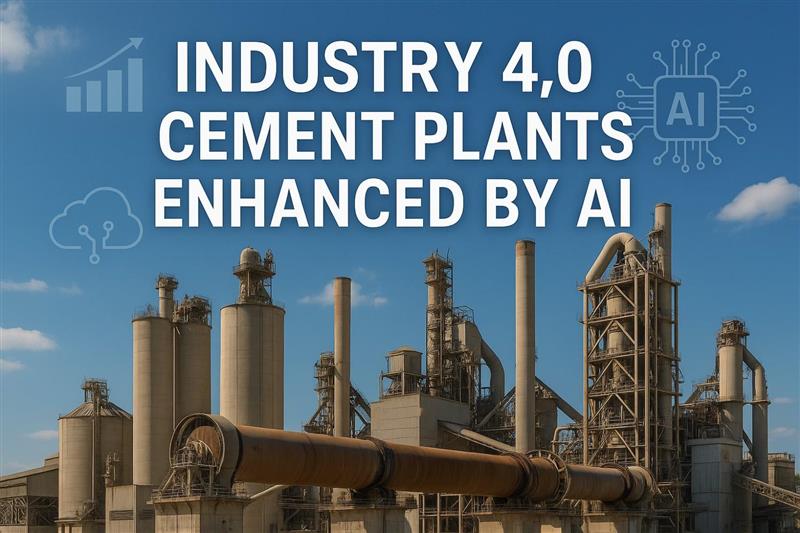
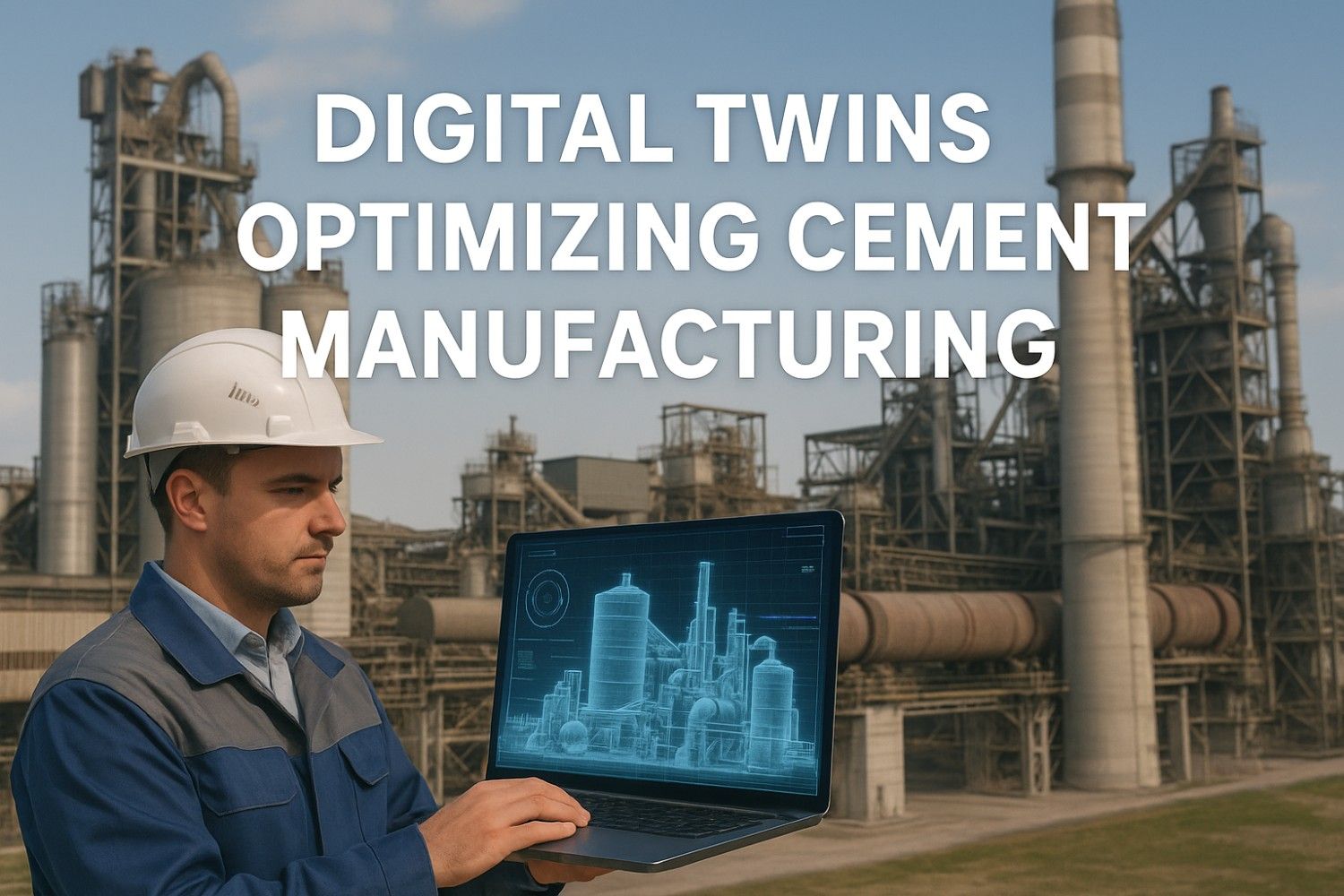
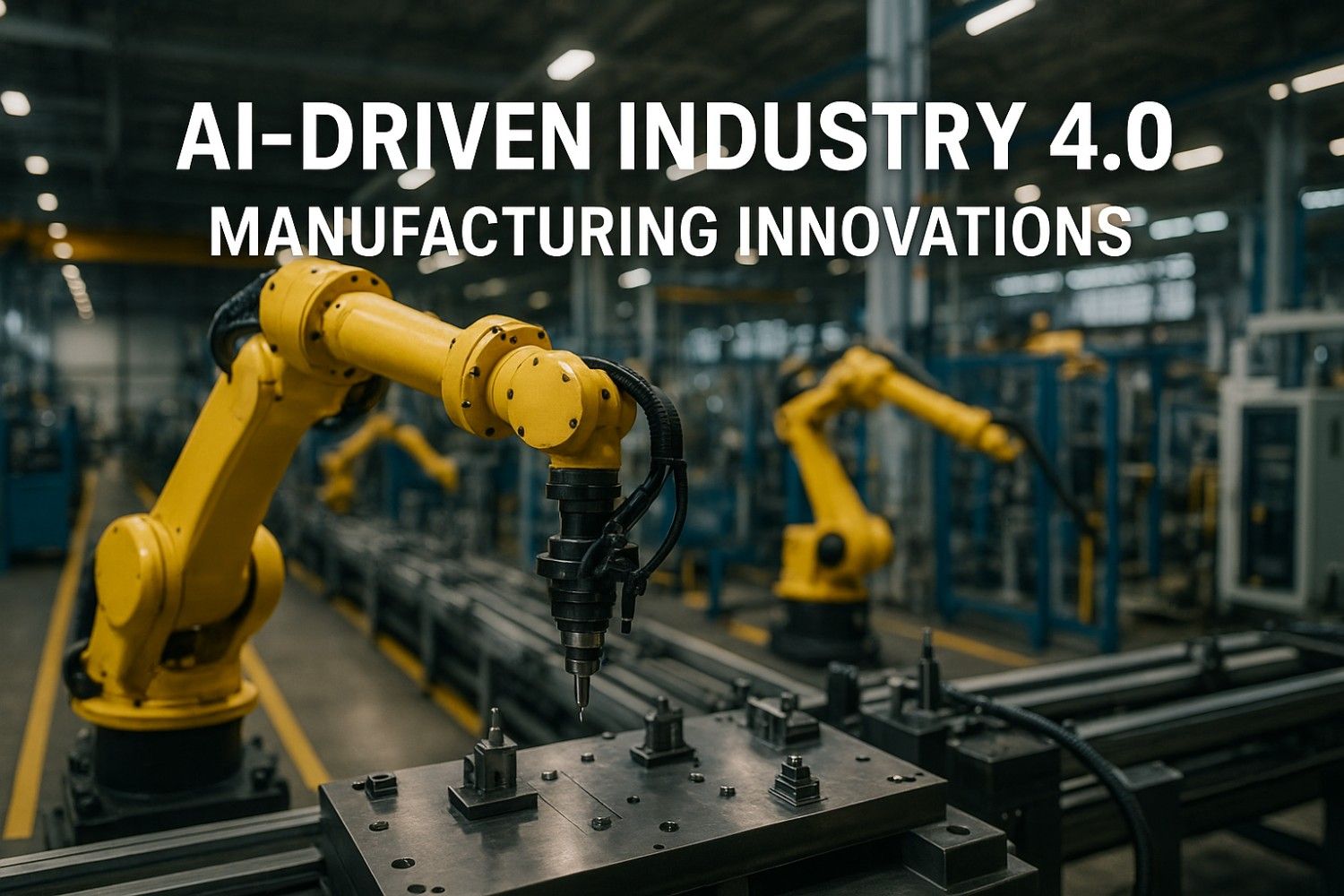
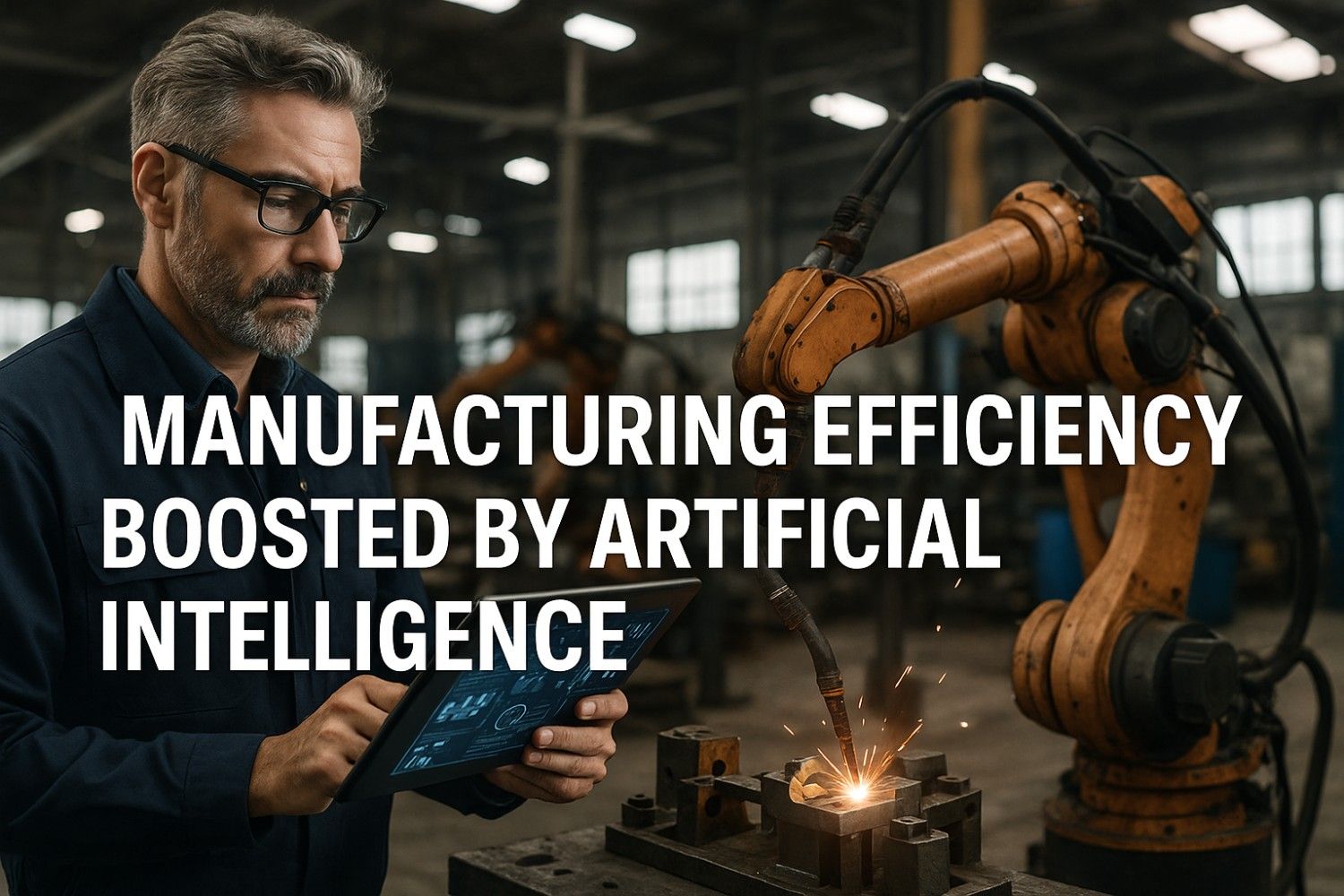
.jpeg)
.jpeg)
